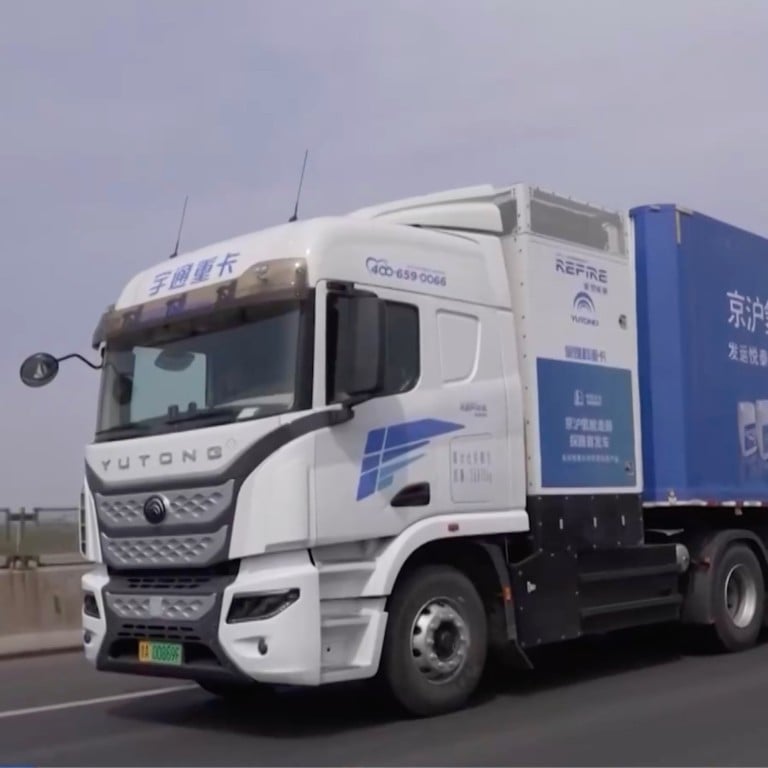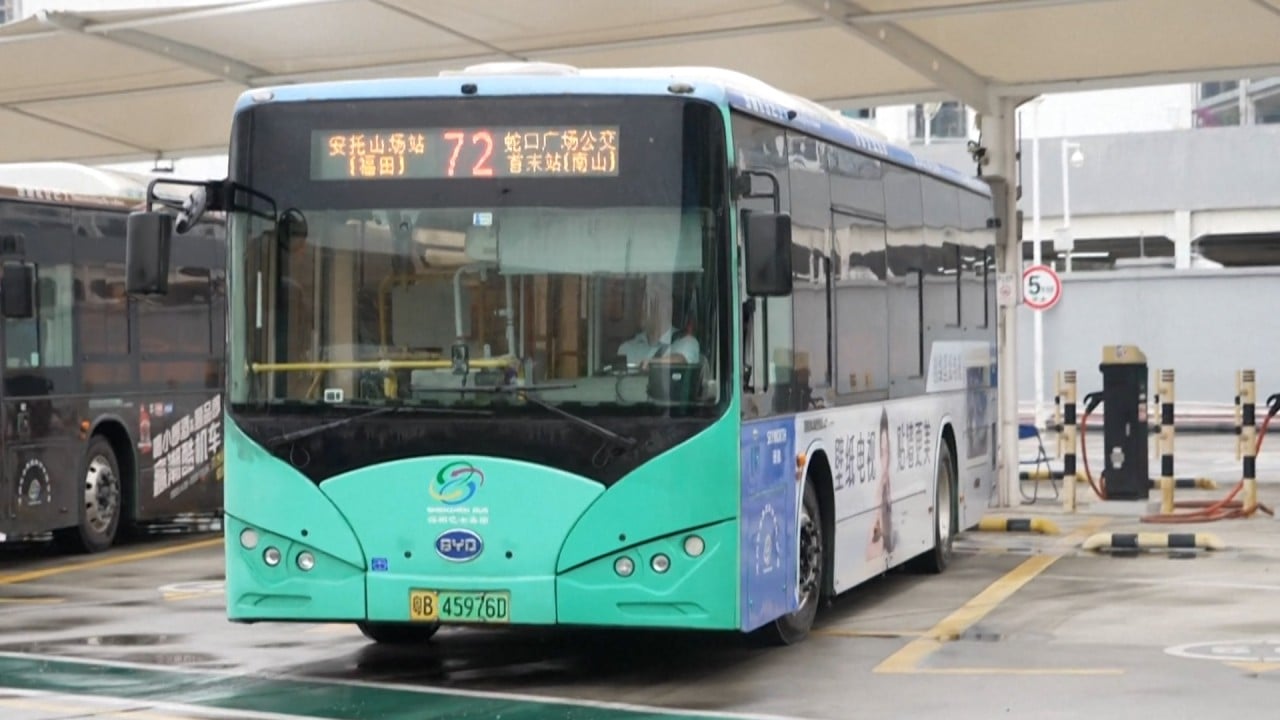
With China’s EV sector at top speed, Beijing eyes ‘economical’ hydrogen-power vehicles amid green energy transition
- China is the world’s top producer and consumer of electric vehicles, and it is now seeking the lead in hydrogen-powered vehicles
- It unveiled its first national-level hydrogen energy development plan in 2022, and has tested its first hydrogen-powered passenger train
Following the meteoric rise of China’s electric vehicle sector, Beijing is betting on hydrogen-powered vehicles as it eyes the possibility of becoming a global leader for the new clean energy source.
Policymakers from central and local authorities have released a variety of incentives and attempted to create new business applications by leveraging China’s massive domestic market.
The southwest province of Sichuan said this week that it was considering scrapping highway tolls for hydrogen-powered vehicles, while also considering lifting restrictions on intracity access for hydrogen-powered trucks.
It also plans to build hydrogen refuelling stations, while also providing subsidies based on the standard of the charging stations.
[Sichuan’s move] will make the use of hydrogen-powered vehicles an economical choice
A month earlier, the eastern Shandong province waived tolls for hydrogen-powered vehicles on its highways for the next two years.
Last week, China also conducted its first long-distance test of two hydrogen-powered heavy trucks, travelling from Beijing to Shanghai over two days.
The operation covered 1,500km (932 miles), crossed six provinces and cities and refuelled at seven hydrogen filling stations, the China Petroleum and Chemical Corporation, also known as Sinopec, said on Wednesday.
“[Sichuan’s move] will make the use of hydrogen-powered vehicles an economical choice [compared to diesel-fuelled trucks],” said Pang Junwen, an analyst with Guotai Junan Securities.
China’s largest oil and gas producer said it has built 11 hydrogen fuel supply centres and 128 hydrogen refueling stations.
Hydrogen is a carbon-neutral energy source that offers the benefits of rapid refuelling, making it suitable for large commercial vehicles.
Pang estimated sales of fuel cell vehicles - which use hydrogen as fuel - in China would surpass 10,000 units in 2024 after sales last year rose by 72 per cent year on year to 5,800.
China has already become a major producer of electric vehicles, lithium batteries and solar cells, and Beijing sees hydrogen energy as a new avenue for cultivating emerging technologies and industries.
It could serve as a potent economic growth engine, while also addressing China’s reliance on oil imports amid geopolitical uncertainty, as well as its carbon emission goals.
China, though, is a late starter as South Korea developed its first hydrogen-powered car by 2000, while Japan launched its first mass-produced hydrogen fuel cell car in 2014.
Beijing’s ambition has been partly encouraged by its success in the electric vehicle sector, with China the world’s top producer and consumer, as well as a global leader in green energy transition.
China’s hydrogen hopes chug on as train trial aims to keep green agenda on track
Authorities unveiled China’s first national-level hydrogen energy development plan in 2022, envisioning wider use of trains, cars, trucks and ships by 2025, as well as annual production of between 100,000 tonnes and 200,000 tonnes of “green hydrogen energy” from renewable sources.
State-owned train maker CRRC said that hydrogen-powered commuter trains running 500km per day could reduce carbon dioxide emissions by more than 10,000kg (22,000 pounds) a year.
China’s hydrogen energy industry is expected to reach an output value of 100 billion yuan (US$13.8 billion) by 2025, with nearly 60 million tonnes of demand by 2050, according to the China Hydrogen Energy Alliance.


